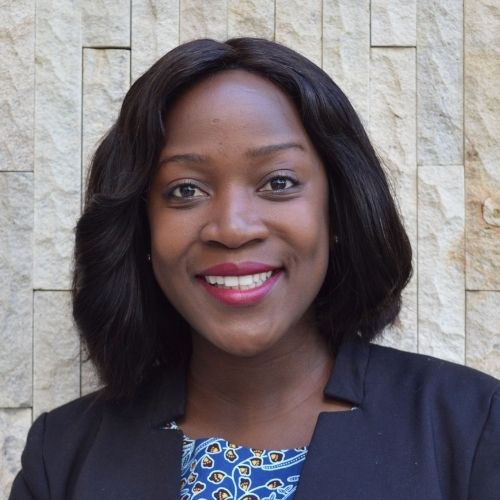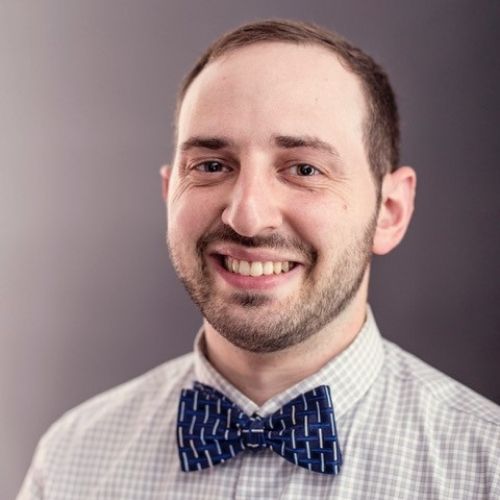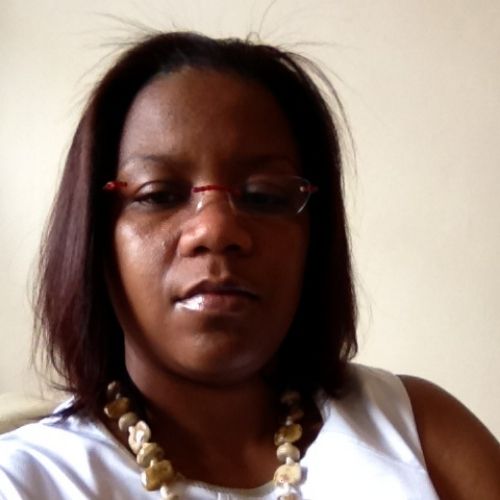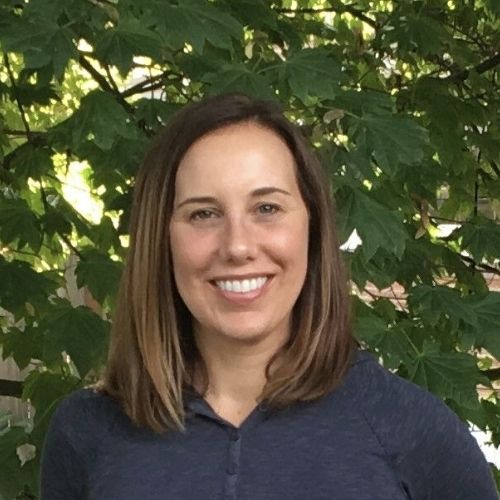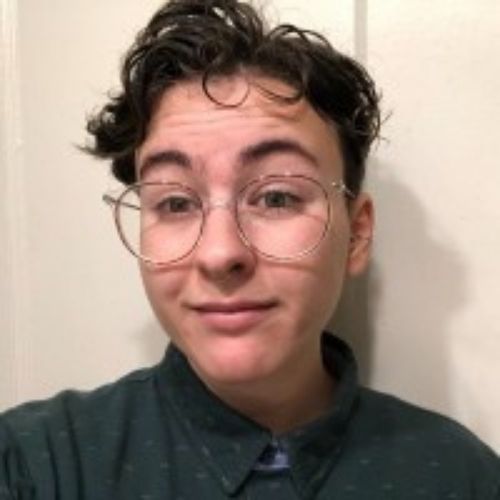The 23rd Annual MPH Practicum Symposium took place virtually between April 13 and May 13, 2021.
The MPH practicum allows MPH students to take part in immersive, team-based work to address real-world public health challenges. The annual MPH Practicum Symposium brings together students, faculty, practice partners, alumni, donors, policymakers, and more to celebrate students’ practice work, faculty mentorship, and community partnership. Each student will have around 15 minutes to present their practicum projects and answer questions. Visit the ‘Past Symposia’ tab to view the full symposium program from last year.
View Presenter, Site, and Project Information
Faculty Moderator: Dave Masuda, Lecturer
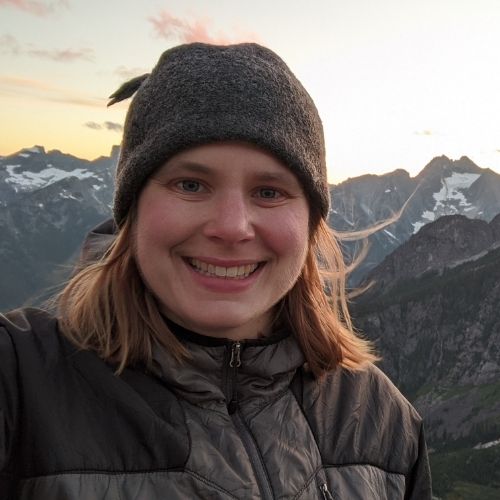
Jocelyn Powelson
Analyzing and Visualizing Data from a Health Hotline in Malawi
Practicum Site: VillageReach
Site Supervisor: Erin Larsen-Cooper
Department: Global Health
Faculty Adviser: Stephen Gloyd
I'm a second-year MPH student in Global Health with interests in social determinants of health, maternal and child health, and implementation science. My Practicum was with VillageReach, where I worked with data from a health hotline started by VillageReach in Malawi. For my Practicum, I helped to manage and analyse the data generated by the calls into the hotline and helped develop data visualizations and reports that were shared with the Malawi MOH. I also contributed to the development of an online data dashboard that now allows for visualization and manipulation of real-time hotline data. In my future career, I hope to continue working at the intersection of research and program development/implementation. In my free time, I enjoy being in the mountains, cooking, and playing board games with friends.
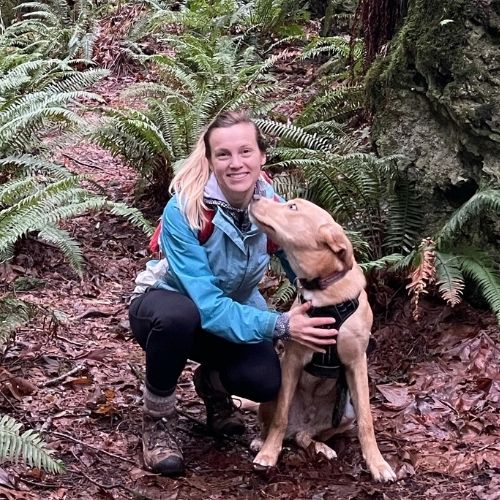
Camilla Senter
Initiation and Evaluation of a Routine COVID-19 Staff Testing Program at a Skilled Nursing Facility
Practicum Site: The Caroline Kline Galland Home
Site Supervisor: Stephanie Chang
Department: Epidemiology
Faculty Adviser: Fitzpatrick, Annette
I am a second-year MPH student in Epidemiology with interests in modifiable risk factors, stress, and infectious disease. Since the COVID-19 pandemic hit, I knew I wanted to gain firsthand experience with case identification and surveillance. For my Practicum, I helped launch and monitor a routine COVID-19 testing protocol for staff members at Kline Galland Home, a skilled nursing facility in Seattle. I collaborated with the infection control team to determine appropriate staff testing frequency, create a prioritized testing schedule, and report test results and distributions over the course of three months. In an unprecedented time of illness and uncertainty, I hope that this project contributed to creating a positive testing culture, preventing infection in diverse populations, and advancing what we know about COVID-19. I am still interested in researching COVID-19, and have recently started an RA with Dr. Annette Fitzpatrick looking at long-term effects of COVID-19. Outside of school and work, I enjoy watching movies, going on walks, and spending time with pets.
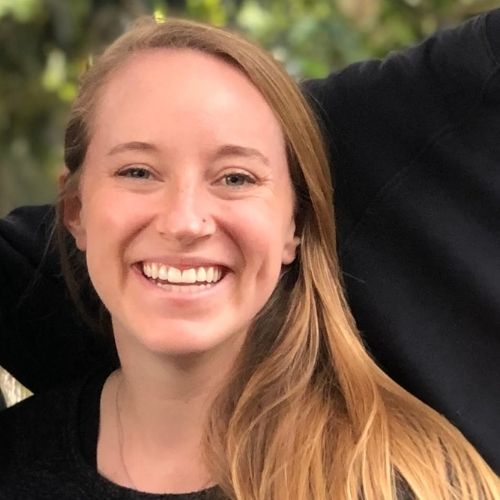
Sarah Sohlberg
Participant Communications for the Greater Seattle Coronavirus Assessment Network (SCAN)
Practicum Site: University of Washington - Chu Lab
Site Supervisor: Ashley Kim
Department: Global Health
Faculty Adviser: Bernardo Hernandez Prado
I am a second-year MPH candidate in the Global Health Metrics & Evaluation program with interests in using data to improve equity in social determinants of health. For my Practicum, I worked as the Participant Communications manager of the Greater Seattle Coronavirus Assessment Network (SCAN), a free, home-based COVID-19 testing program in King County run by the Seattle Flu Study team. My role began as a study representative answering questions and concerns over phone and email, but transformed over the following months into a more strategic position for the study. I reported to SCAN leadership on which issues or questions were driving the most contacts, developed the Issues Tracking system, and created scripts and email templates. I am grateful to have been able to work on a component of the COVID-19 response from the very beginning of the pandemic and see how institutions can partner together to address public health crises.
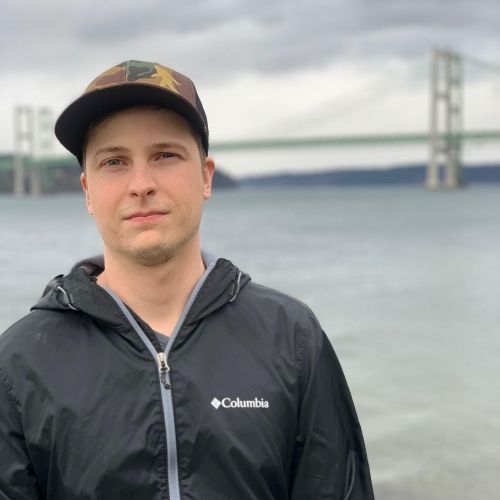
Grant Russell Whitman
Evaluation of N95 Respirator Re-Fit Efficiency Following Decontamination with the Battelle Critical Care Decontamination System
Practicum Site: University of Washington Medical Center
Site Supervisor: Paul Pottinger
Department: Environmental and Occupational Health Sciences
Faculty Adviser: Gerard Cangelosi
I am a second-year MPH candidate in the Environmental and Occupational Health Sciences program. I have been fortunate to have been provided the opportunity to work on a COVID-related Practicum project that I believe will better protect frontline healthcare workers. Involving a multidisciplinary research team spanning researchers from the UW Schools of Medicine, Public Health, and the Environmental Health & Safety Department, our group set out to evaluate respirator refit efficiency following decontamination with the Battelle Critical Care Decontamination System. I was provided the opportunity to assist in designing the study, writing a grant application, putting together an application for an internal review board, RedCap database creation, and management, data analysis, and manuscript writing.
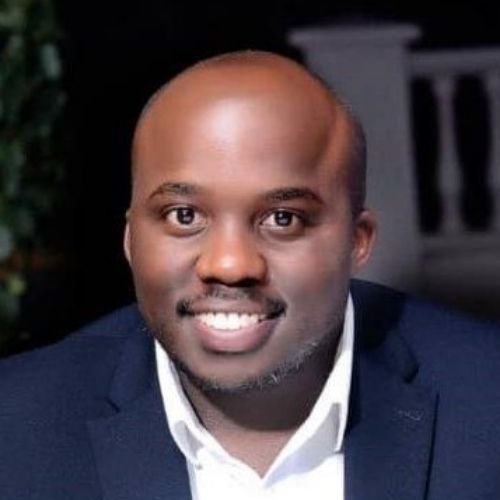
Emmanuel Ayebale
USAID COVID-19 Global Respiratory Care Technical Advisory Group Project
Practice Site: UCSF Anesthesia Division of Global Health Equity
Site Supervisor: Michael Lipnick
Department: Global Health
Faculty Adviser: Anthony Roche
I am a second-year MPH student in Global Health (Health Metrics and Evaluation) and an Anesthesiologist at Harborview Medical Center Department of Anesthesiology and Pain Medicine. As the United States (through USAID) donated thousands of mechanical ventilators to low-resource countries to boost their critical care capacity to treat patients with severe and critical COVID-19, gaps in critical care education were urgently identified. The STAR-UCSF COVID-19 Technical Advisory Group (TAG) was set up to provide immediate expert assistance to USAID on ventilator procurement planning, oxygen ecosystem planning, planning educational initiatives relevant to critical care, COVID-19, and respiratory care in resource-variable settings. I represented the University of Washington on this grant as a Technical Advisor, and through this collaboration the Open Critical Care portal was developed to support frontline healthcare workers in recipient countries with access to curated open-source COVID-19 high-quality critical care learning tools.
Faculty Moderator: Genya Shimkin, Assistant Teaching Professor
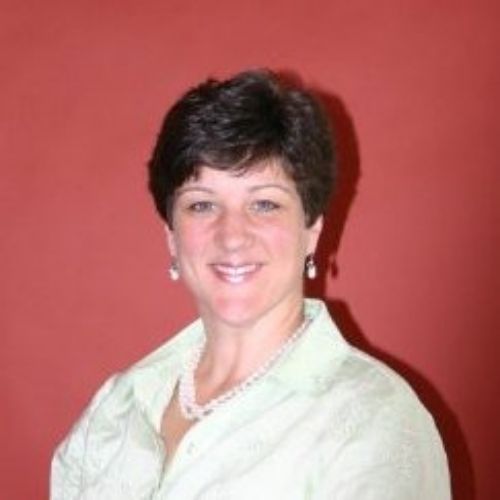
Bryce McGowan
Identification of Methods and Instruments to Evaluate Obesity Prevention Programs for Use in Tribal Communities
Practicum Site: Center for Disease Control and Prevention - Division of Population Health, Healthy Tribes Program
Site Supervisor: Mary Hall
Department: Online MPH
Faculty Adviser: Genya Shimkin
After a career in the fitness/wellness industry and teaching for 10 years in higher education, I decided to pursue a new career path in public health. I started my MPH with a strong desire to work with Native Americans so I was thrilled with the opportunity to work with the Healthy Tribes program at the CDC and the chance to work on a project to identify programs that would have an impact on the health of Native American people, a sorely underserved and often overlooked population. This Practicum was designed to develop and adapt a set of evidence-based methods and instruments to assist in evaluating community-level obesity prevention efforts within a tribal context with culturally responsive evaluation approaches. My hope moving forward is that I continue to work to improve the health of Native Americans.
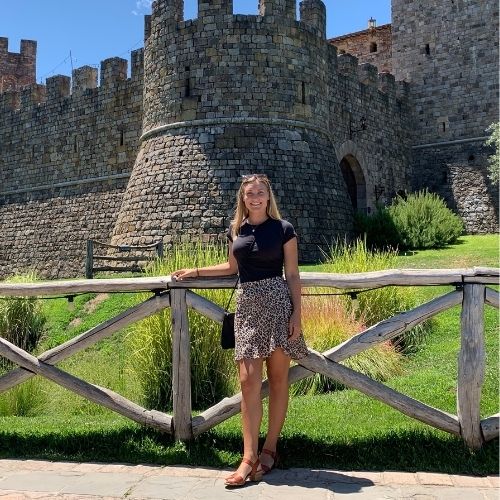
Aspen Avery
Big Food & Big Soda: Assessing Commitment to Racial Justice
Practicum Site: Childhood Obesity Prevention Coalition
Site Supervisor: Victor Colman
Department: Epidemiology
Faculty Adviser: Donna Johnson
I am a second-year MPH student studying Epidemiology. My research interests include psychiatric epidemiology, social determinants of health, and health disparities. This past summer, I worked alongside members of the Childhood Obesity Prevention Coalition (COPC) and Healthy Food America (HFA) to conduct a student-led Practicum project evaluating pronouncements and declared actions in support of racial justice made by leading U.S. food and beverage companies. My role in this project involved developing the qualitative methods, collecting data, and writing a baseline report that will be used to assess companies’ follow-through in the future. The qualitative research skills I have learned from this experience will transfer over into my future research and help me reach my career aspirations, specifically in researching social determinants of health and health disparities. Outside of my studies, I enjoy running, swimming, baking, and reading mystery novels.

Lance Douglas Frankel
COVID-19 Emergency School Meal Programs
Practicum Site: UW Center for Public Health Nutrition
Site Supervisor: Lina Walkinshaw
Department: Health Services
Faculty Adviser: Jessica Jones-Smith
I am a second-year MPH student in Health Services with a concentration in Health Systems and Policy. My passion is in food systems and food law, as the food choices people make in their daily lives are largely shaped by the food systems in which they live. For my Practicum, I worked with UW Nutritional Sciences and my project partner Jennifer Ricaldi to conduct an assessment of Washington school district emergency meal programs during COVID-19 school closures. I analyzed the characteristics of all 296 Washington school district emergency meal programs, highlighting the inequities found between different educational service districts with recommendations to resolve these. My partner and I also conducted a case-study of Seattle Public Schools emergency meal program to highlight key deficiencies and provided recommendations to ensure food equity between the different areas SPS serves.
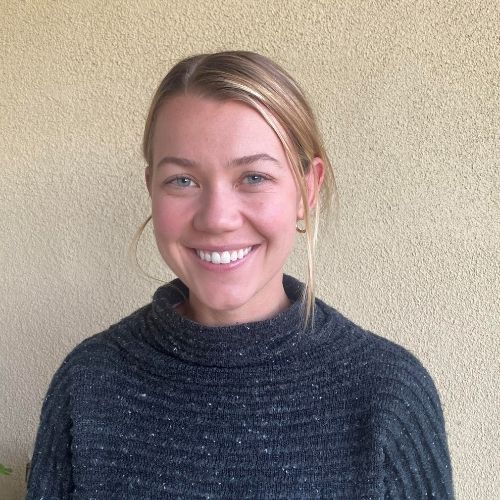
Julia Lund
Developing a Parent Support Program in Partnership with Partners for Our Children
Practicum Site: University of Washington - Partners for Our Children
Site Supervisor: Ashley Rousson
Department: Epidemiology
Faculty Adviser: Susan Barkan
I am a second-year MPH student in Epidemiology. I was drawn to the field after learning that while emphasis in the U.S. is often on healthcare and individual behaviors as drivers of health, it is more accurately social and economic structures that determine one's health. I became interested in understanding the systemic antecedents of health and how offering support to individuals upstream could improve health outcomes and close health disparities. It is with this in mind that I chose to complete my Practicum with Partners for Our Children, an organization that works to focus new thinking, resources, and expertise on the WA state's child welfare system. During my Practicum, I completed a qualitative analysis of stakeholder and partner interviews to inform development of a parenting program intervention best designed to support parents involved in the child welfare system. Through this experience, I developed useful qualitative research skills and invaluable insight into the process of pushing for systemic change.
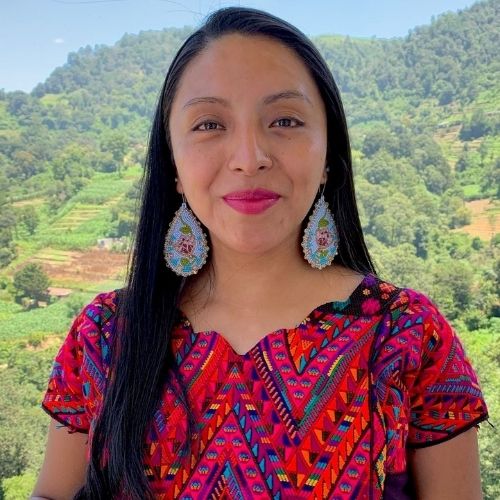
Ingrid Sub Cuc
Explanatory models of hypertension in Guatemala: Recognizing the perspectives of patients, family members, health care providers and central-level stakeholders
Practicum Site: Instituto de Nutrición de Centro America y Panama (INCAP) Guatemala
Site Supervisor: Meredith Fort & Diego Hernandez
Department: Global Health
Faculty Adviser: Steve Gloyd
I am a second year Master of Public Health Student in the Department of Global Health in the Leadership, Policy and Management track. I am Indigenous Maya Kaqchikel and Q’eqchi, originally from Guatemala. My research interests are at the intersection of Indigenous languages, health, and health systems- specifically the interface between western medicine and ancestral/Indigenous health systems. For my practicum, I worked with a research team at INCAP Guatemala focused on the management of hypertension in three regions of the country. The team conducted interviews with various stakeholders, including healthcare providers, operational level healthcare staff and community members. In my role, I assisted with qualitative data analysis of the data collected in one of Guatemala's Indigenous languages, Maya Kaqchikel. Through this analysis, the team learned about the vital role that language plays in understanding a community's acceptance and perception of initiatives that aim to manage chronic diseases. I am now working with the research team to continue exploring this concept as part of my master's thesis research.
Faculty Moderator: Mary Anne Mercer, Senior Lecturer Emeritus
Tikhala Itaye
An Assessment of Gender Based Violence in the Context of Bill and Melinda Gates Foundation Investments
Practicum Site: Bill & Melinda Gates Foundation - Global Policy Advocacy Team
Site Supervisor: Jennifer Okwudili
Department: Global Health
Faculty Adviser: Jeff Lane
I am a second-year MPH candidate studying Global Health with interests in social justice, health determinants/disparities, and community holistic approaches addressing women, adolescent and children health in low-middle income countries. The past 5 years, I have been working as a lawyer specializing in policy advocacy and leading a global movement called She Decides, which advances women and girls’ rights. I choose global health because I believe that no one should ever die from preventable diseases. We live in an unequal world with unequal healthcare services and unequal resources, but we all have a role to play to ensure we create that equal and just world. For my Practicum, I joined the Bill & Melinda Gates Foundation with the Gender Equality team and supported the Gender Equality Special Initiative (GESI) workstream. I led a Gender Based Violence (GBV) internal scoping to understand how the Foundation program team investments affect or are affected by GBV. The work under GESI is guided and driven by Melinda Gates’s commitment of US$1 Billion to advance gender equality. My Practicum experience helped me gain more confidence to speak to a diverse group of program teams and gain some qualitative research skills. The Practicum experience also landed me an opportunity to apply for a grant related to advocacy for gender equality. We recently received news that my organization in Malawi, HeR Liberty, has been selected as one of the grantees.
Daniel Stein
Mason Health Coalition to Address Community Health Improvement Plan
Practicum Site: Mason County Community Services - Mason County Public Health
Site Supervisor: Lydia Buchheit
Department: Online MPH
Faculty Adviser: Genya Shimkin
I am a family physician, consultant for Dakota County and the Health Officer for Mason County. When I started as the health officer, I recognized that there were many partners in the county who were attempting to address the needs of our community although there was no particular organization or coordination of these efforts. We created a structure for these stakeholders to organize under the public health department as the backbone in hope of improving stakeholder investment and reducing overlap of efforts. We also restarted the Mason Matters as the funding source for financing improvement projects. This restructuring project will hopefully be a cost-effective intervention to free up resources with the health department. Outside of work, I enjoy playing ultimate frisbee, painting, hiking, baking and gardening.
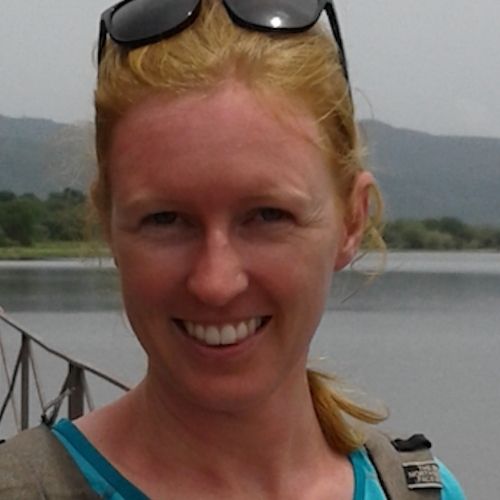
Isabella Fabens
Digital Health Landscape and Tools for Community Malaria Case Management in Angola and Mozambique
Practicum Site: PATH
Site Supervisor: Sarah Burnett
Department: Global Health
Faculty Adviser: Stephen Gloyd
I am a second-year MPH candidate in Global Health. I was a Peace Corps Volunteer in Mozambique prior to the program, and worked on HIV and malaria prevention projects. After Peace Corps, I wanted to continue understanding how malaria interventions could be tailored to local communities. Through an internship and job at PATH, I wrote reports on the digital tools used in Angola and Mozambique, as well as what governance structures and policies exist that focus on digital health. As a Project Manager, I coordinated with staff working in both countries to implement an online survey and key informant interviews. This internship complemented my thesis work at PATH in which I am analyzing qualitative data on the use of bed nets to prevent malaria. In the future, I would like to be a Project Manager for malaria programs in East Africa. Outside of work and school, I enjoy biking, skiing, and singing along with my ukulele.
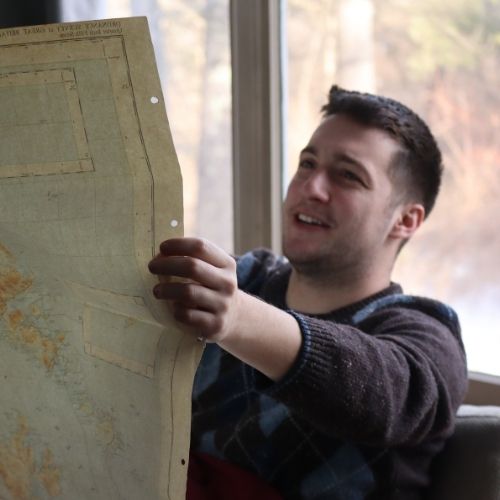
William Sheahan
Identification of Factors Associated with Increased Coverage and Efficiency of Indoor Residual Spray Campaigns for Malaria Control in Zambia
Practicum Site: Akros Zambia
Site Supervisor: Julie Doherty
Department: Epidemiology
Faculty Adviser: Jairam Lingappa
In the course of my work with Akros, I performed multiple ad-hoc analyses of the organization’s Indoor Residual Spray (IRS) campaign data conducted through PATH’s Malaria Control and Elimination Partnership in Africa (MACEPA). Through a combination of data cleaning, QGIS visualization, and multivariate linear regression in R, I identified factors associated with increased coverage and efficiency of IRS interventions throughout the Southern and Eastern Provinces in Zambia. I was particularly interested in examining the effect of spatial overlap between spray team assignments, and I found that this overlap was associated in some areas with significantly decreased efficiency. These findings indicate that the spatial allocation and planning of IRS teams has a significant effect on program success and eventual impact on the health of populations.
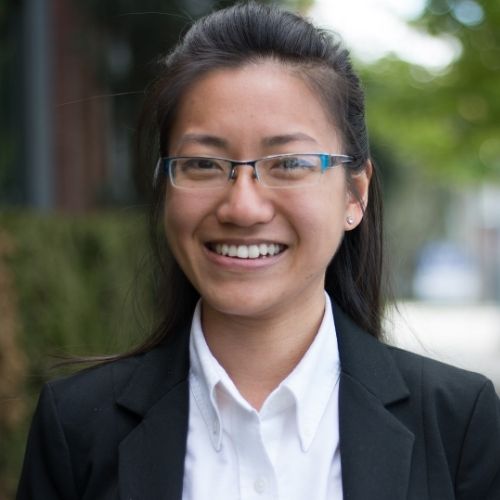
Evelyn Le
Global Mental Health in Southeast Asia
Practicum Site: UW Global Mental Health
Program Site Supervisor: Tessa Concepcion
Faculty Adviser: Pamela Collins
I am a second-year MPH candidate at UW, Seattle, WA, and a fourth-year Naturopathic Medical Student at Bastyr University, Kenmore WA. I am passionate in bring individualized medicine to the community through education and advocating for preventative health. Mental health is one of my passion and I wanted to take it to the global level for my practicum. The last decade was one of considerable change and development for the global mental health field. From The Lancet’s featured series on global mental health in 2007 to the Lancet Commission on Global Mental Health and Sustainable Development in 2018, Global Mental Health has made impressive strides in the global agenda. With this growing attention comes the great need to communicate rapidly changing mental health policy and service implementation. I wrote five policy briefs that covered a variety of mental health issues in Southeast Asia. The practicum experience helped me think globally open my mind to learn from other colleagues who covered other regions in the world. Our policy briefs will be posted on the UW Global Mental Health Program monthly newsletter.
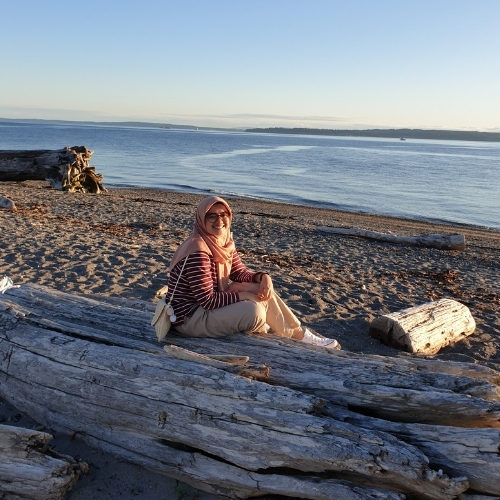
Anida Hanifah
Identifying key gaps from Gender Equity and Social Inclusion (GESI) analysis in Timor-Leste
Practicum Site: Health Alliance International
Site Supervisor: Susan Thompson
Faculty Adviser: Mary Anne Mercer
I am a second-year MPH student in the Department of Global Health with interest in primary health care system strengthening and maternal and child health. For my practicum, I worked with Health Alliance International under their project called The Harmonia Activity: communities ending gender-based violence in Timor-Leste. My role was to support the work at both HAI’s headquarter office in Seattle and the country program office in Dili, Timor-Leste. My practicum experience helped me gain understanding about the management process at a start of a new grant. I learned how an international NGO navigates the space and defines roles and responsibilities between headquarter and country offices. I also learned about various formative research that needed to be carried out before the project kicked off. Aligned with this practicum experience, I was taking Project Management in Global Health course last quarter. The combination of the knowledge I learned in the class and the hands-on experience from my practicum work would be a valuable advantage for my career development after I graduated. In my free time in Seattle, my housemates and I enjoy exploring coffee and donut shops around the city. We also love going to parks where we can sit and watch the sunset.
Faculty Moderator: Marty Cohen, Teaching Professor and Assistant Chair
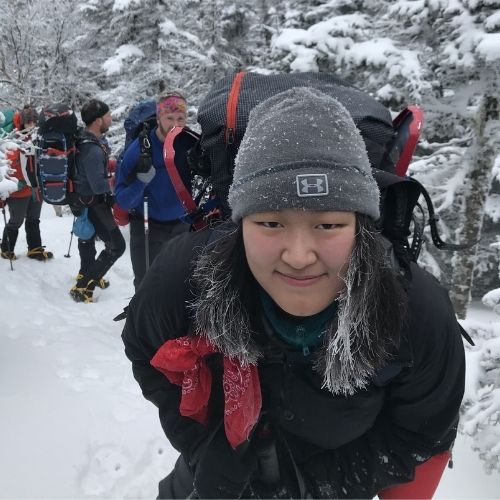
Juliette Randazza
Energy Burden in Washington State: Applying Department of Energy LEAD Tool Data
Practicum Site: Washington State Department of Commerce - Energy Division
Site Supervisor: Kate Kelly
Department: Environmental and Occupational Health Sciences
Faculty Adviser: Nicole Errett
I am a second-year MPH/MPA candidate studying environmental and occupational health with interests in disaster preparedness and policy. For my Practicum, I interned at the Washington State Department of Commerce in the Energy Policy division gaining experience on many projects from green lending to energy emergency management. My main experience was in the Low-Income Energy Assistance Program where I calculated the overall monetary amount of energy burden in the state and presented my results to a technical advisory group. The use of federal data applied to state-level policy recommendations as well as the reports I wrote for my projects contributed to my future career goals of working in policy analysis and program evaluation. I was able to experience the downstream policy considerations of public health disasters as the COVID-19 pandemic significantly affected the types and content of reports for the legislature ahead of the 2021 session.
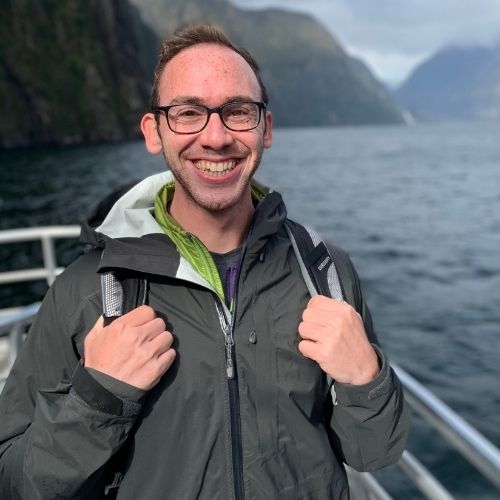
Matthew Goldberg
An Analysis of the Presence and Concentration of Per- and Poly-Fluroalkyl Substances (PFAS) in Home Textiles
Practicum Site: Toxic Free Future (Washington Toxics Coalition)
Site Supervisor: Erika Schreder
Department: Epidemiology
Faculty Adviser: Catherine Karr
I am a second-year MPH candidate studying Epidemiology with interests in modifiable exposures, and outcomes research. For my Practicum, I worked with Toxic Free Future (a non-profit that advocates for the use of safer products through research and advocacy) on a project aimed at assessing the use of per- and poly-fluoroalkyl substances (a class of potentially toxic stain- and water-proofing chemicals) in commonly used textiles. As part of the project, I conducted research and outreach to determine the types of products treated with PFAS, the degree of use in an array of common household textiles, and the potential alternatives available to producers and consumers. My time working on my Practicum allowed me to develop relevant applied research skills, and to pursue my interests in environmental exposures and risk factors we are all exposed to on a daily basis. I spend most of my free time cooking, camping, and getting outside however possible.
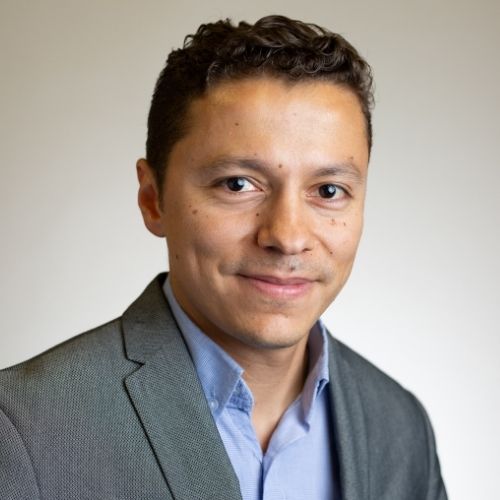
Juan Sebastian Osorio-Valencia
Global Water Labs - an Affordable Technology to Remove Lead Contamination from the School's Drinking Water
Practicum Site: UW Population Health Initiative
Site Supervisor: Meher Antia
Department: Global Health
Faculty Adviser: Deepa Rao
I am a second-year MPH student in Global Health. I work as a Biomedical Engineer with a master's degree in biomedical informatics, and research experience in medical device and imaging development and healthcare technology adoption. Currently, I am a project manager at MIT Critical Data, and co-founder of Clubes de Ciencia Colombia and ScienteLab. For my Practicum, I was a Population Health Initiative Social Entrepreneurship Fellow, working with the NGO, Global Water Labs, deploying their technology to remove lead contamination in drinking water in the U.S. schools. I learned that the problem was not one that could be solved by technology alone. Conversations with a broad group of stakeholders revealed that technology solutions must go hand in hand with systemic changes that involve schools, policymakers, regulators, and community advocates. This work identified a number of potential partners that Global Water Labs can collaborate with to ensure that their technology will have its intended impact. I am passionate about social innovation and health entrepreneurship and will continuously advocate for greater multidisciplinary collaboration to solve global health problems.
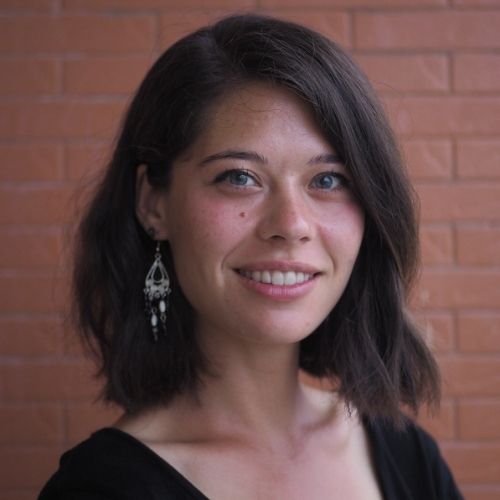
Leah Wood
Understanding Policy Leverage Points for Integrating Public Health and Prescribed Fire in Western Coastal States
Practicum Site: The Nature Conservancy
Site Supervisor: Yuta Masuda
Department: Global Health
Faculty Adviser: June Spector
As a concurrent MPH/MPA student in the Department of Global Health and the Evans School, my interest is in the intersection of environmental science and conservation, public health, and public policy. I completed my Practicum with The Nature Conservancy and UW's Science for Nature and People Partnership project looking at the health and health equity considerations of prescribed fire. While fire has been used by Indigenous peoples of North America to shape landscapes for millennia, Western science is really only now just catching up after several centuries of fire exclusion policy, contributing to why we're experiencing such intense wildfires now. However, prescribed fire produces smoke, which can impact health in nearby communities. My specific role was to work with a multidisciplinary group of stakeholders to identify policy barriers and facilitators to prescribed fire, create a stakeholder analysis, and develop a series of recommendations and a policy brief aimed at integrating a holistic lens and collaborative approach to prescribed fire policy in west coast states. I've loved the opportunity to work across disciplines, in non-traditional public health spaces, and to work with mentors and partners through my Practicum.
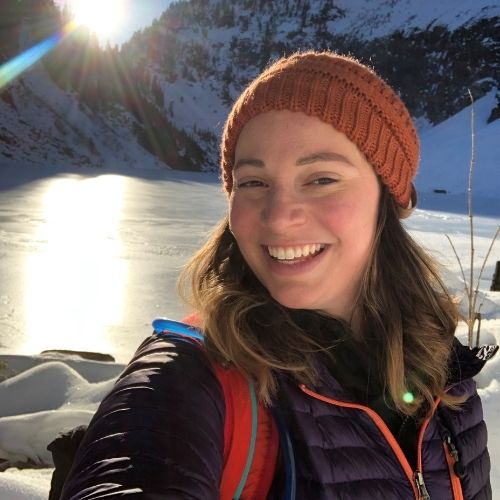
Madeline Benoit
Current Occupational Hazards of Swine Workers and Mitigation Strategies: A Literature Review
Practicum Site: National Pork Board
Site Supervisor: Heather Fowler
Department: Environmental and Occupational Health Sciences
Faculty Adviser: Peter Rabinowitz
I am a second-year MPH student in Environmental and Occupational Health Sciences, with vested interests in the One Health paradigm, zoonotic disease, environmental sustainability, and most of all, protecting the health of animals and livestock workers. My passion for the wellbeing of animal health workers led me to my Practicum with Dr. Heather Fowler, a decorated alumna of the University of Washington who is currently working for the National Pork Board as the Director of Producer and Public Health. For my Practicum, I conducted a literature review which assessed and ranked the primary hazards which the modern swine worker faces, and provided specific mitigation strategies to protect these workers; additionally, I created presentations of my findings to various stakeholders, from swine producers and the public to researchers and public health experts. My Practicum experience allowed for networking possibilities (even during COVID!), completing and presenting a comprehensive literature review, and applying my findings to real-world situations. I love to spend my free time horseback riding, hiking, reading, and baking.
Faculty Moderator: Bernardo Hernandez Prado, Associate Professor
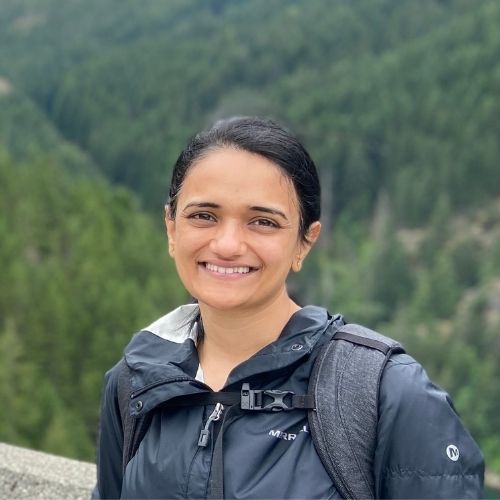
Medhavi Bole
Development of Supplemental Surveillance Interview for Syphilis in Pregnant Women
Practicum Site: Public Health - Seattle & King County - Sexual Health Clinic, Harborview Medical Center
Site Supervisor: Lindley Barbee
Department: Epidemiology
Faculty Adviser: Christine Khosropour
I am a second-year MPH candidate in Epidemiology and an Infectious Disease fellow at the University of Washington. My primary research interests are the prevention and treatment of HIV and sexually transmitted infections (STIs). For my Practicum, I worked with the Public Health Seattle King County – Sexual Health Clinic to conduct a literature review for risk factors for congenital syphilis and develop supplemental STI surveillance system interview questions for pregnant women with syphilis to better understand congenital syphilis in King County. In the future, I hope to use my clinical and epidemiology training towards reducing the spread and improving the treatment of infectious diseases. Outside of work, I enjoy spending time with my family and exploring the outdoors.
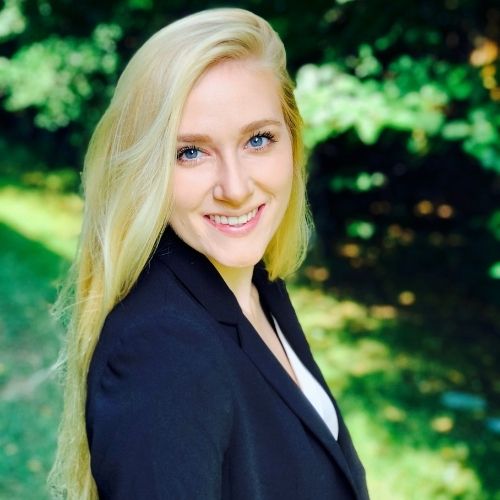
Madelyn Sather
Identifying Interventions for the Provision of Long-Acting Reversible Contraceptive (LARC) Methods
Practicum Site: Florida Department of Health - Bureau of Family Health Services, Maternal and Child Health Section
Site Supervisor: Ghasi Phillips-Bell
Department: Epidemiology
Faculty Adviser: Daniel Enquobahrie
I am a third-year dual-degree MPA/MPH candidate studying Epidemiology with interests in maternal and child health, policy analysis and evaluation, public health practice, and social determinants of health. For my practicum, I worked with the Florida Department of Health (FDOH) to support their understanding of barriers to long-acting reversible contraceptive (LARC) use among reproductive-age women in the state. My primary role was to identify evidence-based interventions that successfully measured LARC uptake, continuation, and access via a scoping review. Successful interventions, determined by statistical significance, were mapped onto the different levels of the socio-ecological model. My practicum provided a great experience in analyzing and assessing the impact of policies and programs that could be most effective in improving access and removing barriers to healthcare.
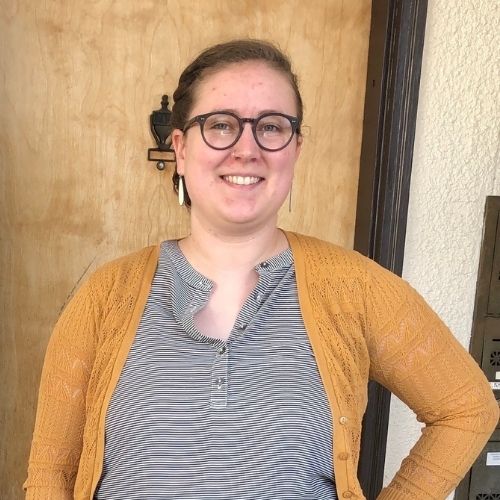
Molly Simonson
Condom Distribution Project Evaluation for Public Health – Seattle/King County
Practicum Site: Public Health - Seattle & King County - Chinook Building
Site Supervisor: Francesca Collins
Department: Epidemiology
Faculty Adviser: Grace John-Stewart
I am a second-year MPH student in Epidemiology with an interest in infectious diseases, and in particular sexually transmitted infections and sexual health. For my Practicum I decided to partner with Public Health – Seattle/King County’s HIV/STD Program on their Condom Distribution Project. This project aims to provide free accessible condoms to all King County residents through partnerships with local businesses and community organizations. My role was to conduct an evaluation of the pilot project located in South King County in order to provide recommendations for improvement and expansion of the project into other areas of King County. This project allowed me to flex both my quantitative and qualitative analysis muscles, and gain a deeper understanding of the community’s need and desire for HIV/STI prevention measures in South King County.

Francis Slaughter
I-TECH Ukraine Index Partner Testing and PrEP Scale Up
Practicum Site: International Training and Education Center for Health (I-TECH)
Site Supervisor: Nancy Puttkammer
Department: Epidemiology
Faculty Adviser: Stephen Gloyd
I am a second-year MPH candidate studying Epidemiology and Global Health with interests in infectious disease and big data. My practicum was conducted with the International Training and Education Center for Health (I-TECH) with its Ukraine team. The team’s goal is to provide monitoring & evaluation of index partner testing within various HIV care sites. My task was to help improve a tableau workbook to create a timelier tool for the team to monitor the sites. I enjoyed this project because it helped me to interact with public health outside of the realm of academia. It was also my first time working with a global team and allowed me to understand the importance of positionality when working across cultures. Asides from studying, I enjoy biking, spending time with community, and being outside.
Naziat Carimo
Improving Data in Public Health Research
Practicum Site: Global WAch
Site Supervisor: Jaclyn Escudero
Department: Global Health
Faculty Adviser: Sylvia Lacourse
I am a second-year MPH student in Global Health. My research interests are on maternal and child healthcare service delivery approaches, particularly on HIV and Tuberculosis care among women and children. While working in public health programs in a low-income country, I have been challenged to contribute to data quality improvements to track health care system performance. For my practicum, I worked with Global WACh, a global center for integrated health of women, adolescents, and children. I had the opportunity to be a data manager for the Infant Tuberculosis Prevention Study (iTIPS). This unique experience allowed me to gain skills to lead data quality improvement initiatives in public health programs. Outside work, I enjoy cooking, spend time with family and friends, and traveling.
Faculty Moderator: Clarence Spigner, Professor
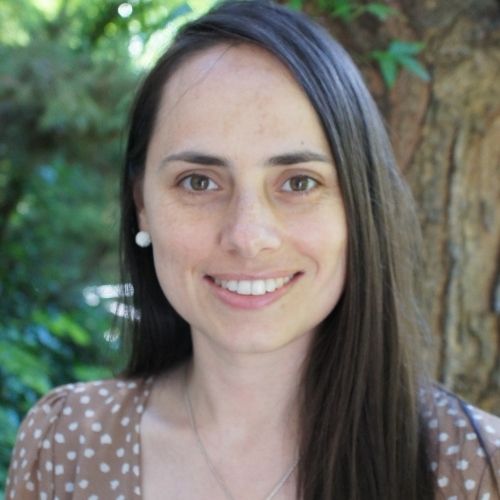
Stefani Florez-Acevedo
Latinx Community Needs Assessment in King County
Practicum Site: El Centro de la Raza
Site Supervisor: Heidi Hammes
Department: Health Services
Faculty Adviser: Linda Ko
As a Latina immigrant and a second-year MPH student in Health Services, I am interested in reducing the physical and mental health disparities in my community. For my Practicum I worked in the 2020 Community Needs Assessment led by El Centro de la Raza, a community-based agency, with collaboration from the Fred Hutchinson Cancer Research Center and King County. My role was to create a qualitative study design using focus groups, which gave us insights into the burden that my community has endured before and during the COVID-19 pandemic. With this experience I learned the importance of collaborative work and to listen directly from the community to improve and sustain programs that best serve disenfranchised Latinx communities. This Practicum renewed my passion to continue working on behalf of Latinx immigrants’ wellness. In my spare time I love hiking with my family in the beautiful Puget Sound.
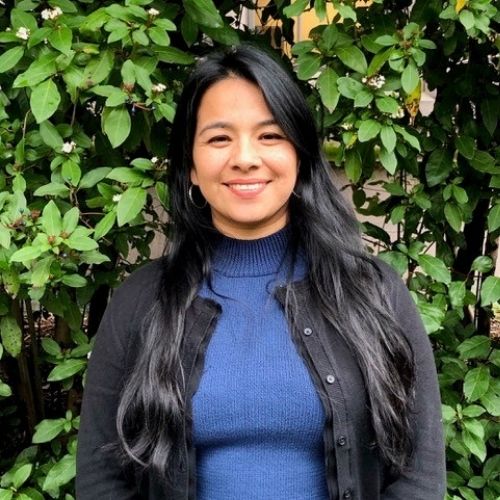
Daisy Parra-Padilla
El Centro de la Raza’s South King County Community Needs Assessment
Practicum Site: El Centro de La Raza
Site Supervisor: Heidi Hammes
Department: Health Services
Faculty Adviser: India Ornelas
I am a second year Master of Public Health Student candidate in the Department of Health Services with a concentration in Maternal and Child Health. My interests are in healthcare access, nutrition, child development, and maternal health with a focus in the Latinx community. For my practicum, I worked with El Centro de la Raza’s South King County Community Needs Assessment in collaboration Fred Hutchinson Cancer Research Center, Public Health – Seattle & King County, and ITHS. My primary role was conducting an asset mapping with visual representation of services provided to Latinx community in eight South King cities and took part in developing, monitoring, and data analysis of the survey. Through my experience, I have learned the importance of communication and collaborative work to address the community’s needs, and the value of flexibility to adjust to unforeseen challenges like COVID-19 pandemic. It has been a privilege and pleasure to work and learn from those taking part in El Centro de la Raza’s CNA.
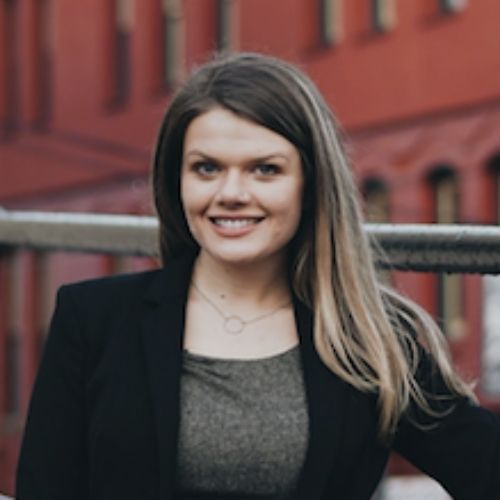
Katherine Jacobsen
National and State Performance Measures Evidence-Based Training and Education Guide for MCH Title V Programs in Iowa
Practicum Site: Iowa Department of Public Health - Division of Bureau of Family Health
Site Supervisor: James Olson
Department: Health Services
Faculty Adviser: Todd Edwards
I am a second-year MPH student in Health Services - Maternal and Child Health (MCH). My primary interests include maternal and reproductive health, nutrition and food justice, and specifically addressing birth equity and outcomes. For my Practicum, I had the opportunity to participate in the National MCH Workforce Development Center's Title V internship program, where I was placed with the Iowa Department of Public Health (IDPH). I was able to use my knowledge in Title V funding and programming to help create evidence-based educational training guides to educate and inform the 23 MCH agencies contracted with the IDPH of the plans for addressing the selected State and National Performance Measures (NPMs and SPMs). These training guides include short, comprehensive summaries of each NPM and SPM, a handful of infographics, and an informational video. They also include a summary of the measure, examples of what other states are doing, the literature to support the importance of the measure, how equity will be addressed, and additional resources for agencies.
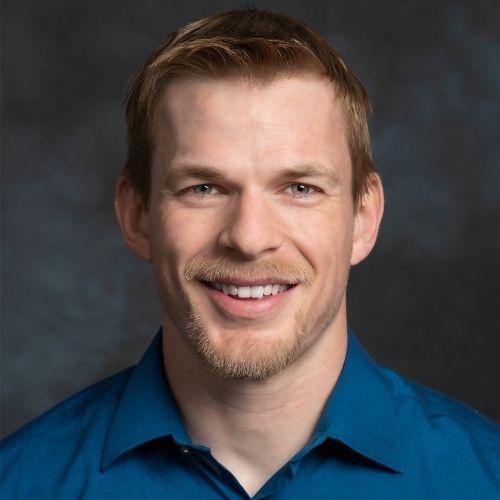
Noah Andersen
Evaluating King County Metro's Human Service Bus Ticket Program
Practicum Site: King County Metro - King Street Center
Site Supervisor: Lindsey Geto
Department: Epidemiology
Faculty Adviser: Janet Baseman
I am a concurrent student pursuing my MPH in Epidemiology and MPA at the Evans School of Public Policy. My interests focus on homelessness and poverty. Prior to graduate school, I worked at a short-term homeless shelter in Seattle's Central District. My Practicum is a program evaluation of King County Metro Transit's Human Service Bus Ticket Program, which is designed to provide paper bus tickets to individuals receiving homeless services. Transportation is a critical component to all human services upon which all effective interventions in homelessness depend.
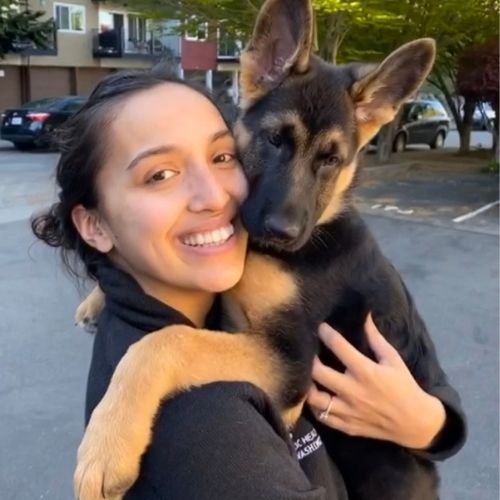
Tara Ogilvie
Identifying Early Learning and Literacy Approaches Among Native Hawaiian and Pacific Islander (NHPI) Families
Practicum Site: University of Washington - Seven Directions Public Health Institute
Site Supervisor: Myra Parker
Department: Health Services
Faculty Adviser: Linda Ko
My interest in working with Native Hawaiian and Pacific Islander (NHPI) populations has been the impetus to gearing my career towards promoting services and resources for underserved populations. My passion has led me to pursue my MPH in Health Services to identify sustainable culturally competent solutions to address health disparities that affect NHPI communities. For my Practicum, I worked with Seven Directions Indigenous Public Health Institute in collaboration with United Indians of All Tribes Foundation to support the expansion of their cultural adaptation of the Parents as Teachers curriculum with NHPI families in order to develop culturally appropriate resources for families. My primary role was to apply qualitative research methods by creating the interview guide and conducting research interviews with NHPI cultural experts and parents. I conducted a preliminary analysis and wrote a report to inform key leaders and partner organizations who are working with NHPI populations. I would like to further my research on assessing the social determinants of health for Indigenous populations and continue to work with local NHPI communities. In my free time, I enjoy exploring the outdoors with my German Shepherd puppy and trying new foods with my loved ones.
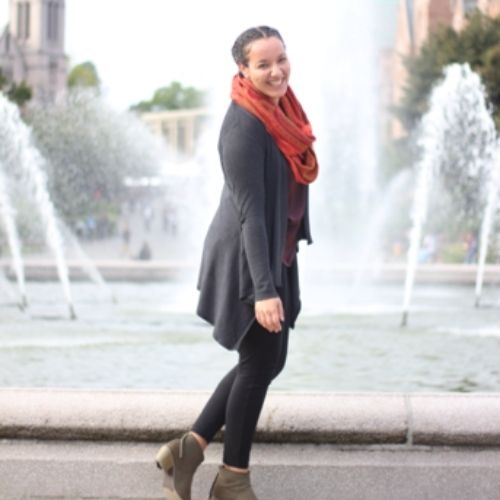
Anna Elberier
Human Trafficking 201" Pilot Workshop Development, In Partnership with Seattle Children's Center for Diversity and Health Equity
Practicum Site: Seattle Children’s Hospital - Center for Diversity and Health Equity/Gender Clinic
Site Supervisor: Alicia Adiela
Department: Health Services
Faculty Adviser: Anne Turner
I am a second-year MPH student in Health Services. I have been a Home Visitor Specialist for two early learning programs—Parents as Teachers (PAT) and Early Head Start (EHS)—where I provided wide-ranging child development and family support services to low-income families with children birth to 3 years of age, and pregnant women. For my practicum, I developed a pilot workshop for Seattle Children’s Hospital’s Center for Diversity and Health Equity. This workshop focuses on providing staff and providers the skills necessary to better support patients who are suspected of being involved in human trafficking, with the intent of improving care to this patient population. In the future, I hope to use my MPH to expand my work with underserved minority communities and to develop health promotion interventions targeting adverse childhood experiences (ACEs) to improve health and development outcomes among children.
Faculty Moderator: Todd Edwards, Associate Professor

Akila Ramaraj
Qualitative Evaluation of Moms’ Access Project ECHO
Practicum Site: University of Washington - School of Medicine, Maternal-Child Mental Health Program
Site Supervisor: Jamie Adachi
Department: Health Services
Faculty Adviser: Todd Edwards
I am a second-year MPH student working as a research fellow with the department of Pediatric General Surgery at Seattle Children's Hospital. My research focuses on surgical health outcomes, and I have a particular interest in health disparities and social determinants of health as they are related to pediatric surgery. My Practicum project was a program evaluation of the first cohort of the Moms' Access Project ECHO: Perinatal Psychiatry Case Conference. This program provided monthly education to community obstetric and psychiatric providers to increase workforce competence managing perinatal mental health conditions. My evaluation focused on understanding the participant experiences and finding ways to improve the program for the next cohort of participants.
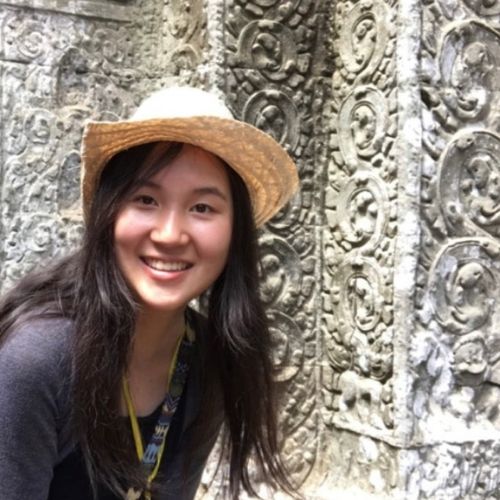
Fa Kul
Newborn Screening: Communication Toolkits for Parents and Healthcare Providers
Practicum Site: Washington State Department of Health - Public Health Laboratory, Shoreline
Site Supervisor: John Thompson
Department: Public Health Genetics
Faculty Adviser: Anna Mastroianni
I am a first-year MPH student in Public Health Genetics. My passions in improving population health and alleviating severity in genetic conditions led me to expand my experiences in doing public-based projects at the Washington State Department of Health (DOH). Newborn screening is the process of testing a population of newborns for a genetic condition in order to identify the condition early and provide effective treatments. For my Practicum, I am assisting the newborn screening program at the DOH. I provide educational materials for new conditions added to the screening panels for healthcare providers and parents in the community. It is a remote public health project where I am responsible for analyzing and interpreting complex hereditary conditions data into digestible fact sheets for parents who have a baby with a positive screen in order to aid them for better understanding in genetic conditions, available treatments, and clinical support.
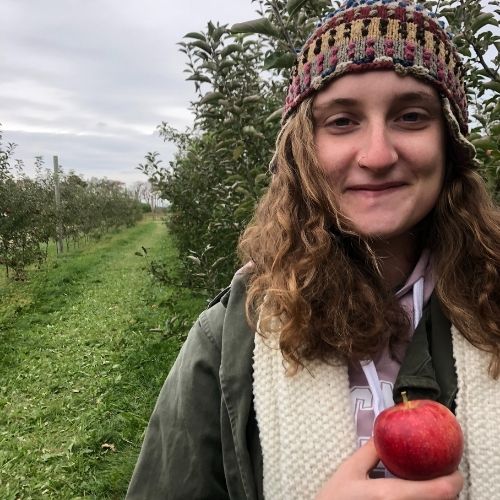
Sarah Perlin
Breastfeeding Promotion and Support Among Early Learning Providers in Washington State
Practicum Site: The Washington State Department of Health, Healthy Eating Active Living (HEAL) Program
Site Supervisor: Chris Mornick, Milo Nicholas
Department: Nutritional Sciences
Faculty Adviser: Anne Lund
I am a second-year MPH nutrition student and dietetic intern within the Graduate Coordinated Program in Dietetics (GCPD). My primary interests in nutrition lie in supporting pregnant and lactating families as well as adopting weight-neutral approaches to embracing food for health prioritization. For my practicum project, I interned at the Washington State Department of Health (DOH), specifically within the Healthy Eating Active Living Program (HEAL). My preceptors and I worked closely with stakeholders from the Office of the Superintendent of Public Instruction (OSPI), another state agency, to create culturally appropriate, Washington-specific breastfeeding resources for childcare providers. I also focused on breastfeeding promotion within the context of the Child and Adult Care Food Program (CACFP), a federal assistance program that provides reimbursements to childcare providers for serving nutritious meals onsite. Providers can also receive reimbursements when parents breastfeed onsite or bring in expressed breast milk, illuminating the opportunity for providers to continue supporting breastfeeding families. This project involved extensive background research related to breastfeeding, childcare across Washington, equity, and the CACFP. My hope is that the work I've done will begin discussions and spread some awareness related to the importance of breastfeeding and how to best support all people in meeting their breastfeeding goals while acknowledging the impacts of structural inequities and racism. My interests outside of school include singing and songwriting, baking bread, spending time outside, and hiking.
Julie Skene
Congenital Cytomegalovirus Analysis
Practicum Site: Washington State Department of Health - Early Hearing Loss Detection, Diagnosis and Intervention (EHDDI)
Site Supervisor: Karin Neidt
Department: Global Health
Faculty Advisor: Jennifer Slyker
I am a registered nurse and a concurrent DNP/MPH student focused on population and global health. For my MPH practicum, I worked with the Department of Health's Early Hearing Detection, Diagnosis, and Intervention (EHDDI) Program to conduct a landscape analysis of local, national, and global practices around congenital CMV (cCMV) education and screening. My role was to review the existing scientific literature, interview key stakeholders, and report my findings and recommendations in a written manuscript. I also collaborated with the EHDDI program staff to develop educational resources for providers and families along with a plan for disseminating the materials.
Faculty Moderator: Christine Khosropour, Assistant Professor

Mariyam Shaikh
Understanding the Pregnancy and Delivery Experiences, Mental Health and Attachment Among Women Diagnosed as SARS CoV Positive
Practicum Site: UW Psychiatry and Behavioral Sciences Maternal-Child Mental Health program
Site Supervisor: Jamie Adachi
Department: Epidemiology
Faculty Adviser: Daniel Enquobahrie
I grew up in Mumbai, India and completed my undergraduate degree in Alternative Medicine in 2016. I started my career working as an assistant doctor at a fertility clinic and continued work in the field of OBGYN and infertility for 2.5 years. I moved to the U.S. in 2018 to pursue a Master’s in Public Health. For my Practicum, I helped build up a survey and interview guide for the research study. I also conducted individual interviews and participated in preliminary data analysis. Working on this mixed-methods project helped me gain experience with qualitative data collection and analysis. It also helped me to broaden my understanding of health services and how we can improve them in infectious disease epidemics like the current one. I hope to apply the skills learnt in this project to my future work in the field of Maternal and Child health. Outside school, I am a trained dancer, I enjoy baking, reading and hiking.
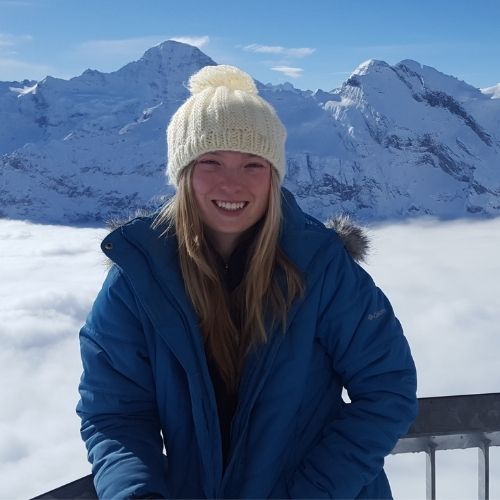
Sarah Yarborough
The Development of COVID-19 Contact Tracing Technology
Practicum Site: Washington State Department of Health - Office of the State Health
Site Supervisor: Bryant Karras
Department: Epidemiology
Faculty Adviser: Janet Baseman
I am a second-year MPH student in Epidemiology. I was born and raised in Southern California, and I graduated with my B.S. in Biology from California State University Channel Islands. My research interests lie mainly in infectious diseases and One Health, which led me to complete a COVID-19 centered practicum with Dr. Janet Baseman. My practicum project consisted of two different components – the creation of a contact tracing training module designed and implemented by the Northwest Center for Public Health Practice, and participation in an Advisory Committee that evaluated the use of a Bluetooth-based contact tracing app in the state of Washington. In the first part of my project, I wrote an environmental scan report that highlighted the need for an online contact tracing training module, and assisted with content development. For the second part, I conducted a comprehensive literature review on existing contact tracing technologies in the US and in other countries. I currently work at the VA Puget Sound as a research specialist for a large-scale, multi-site study on COVID-19 outcomes.
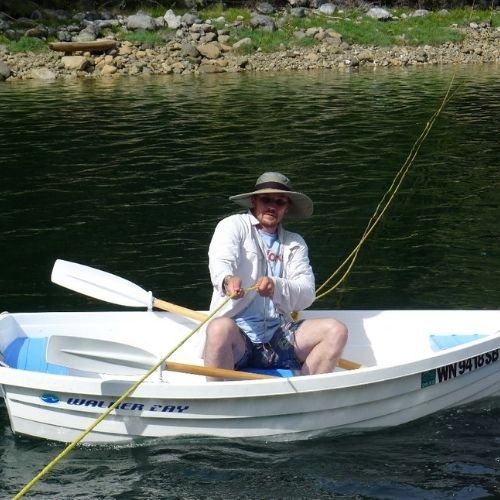
Samuel Byrne
PRESS COVID-19: Novel Contact Tracing Study at Providence, Everett
Practicum Site: Providence Health and Services
Site Supervisor: Sean Weaver
Department: Epidemiology
Faculty Adviser: Lisa Manhart
I am a second-year MPH student in Epidemiology. I am interested in zoonotic infectious disease, epidemic disease, epidemiology methods and vaccine programs. While working as a bone marrow transplant chemist, I was fascinated reading the history of infectious disease, and learned of the high probability of future spillover events. This led me to an MPH, and eventually to participate in the Proactive Response to Slow the Spread of COVID-19 project, pioneered at Providence Regional Medical Center in Everett. A small team of contact tracers were notified when the Emergency Department identified a COVID-19 positive case, and performed bedside contact tracing. This rapid, in-person public health interview identified more contacts per case than the local health jurisdiction, and did so more quickly. This process allowed expedited dispensation of public health guidance, and created a model for coordination between hospital care and public health.
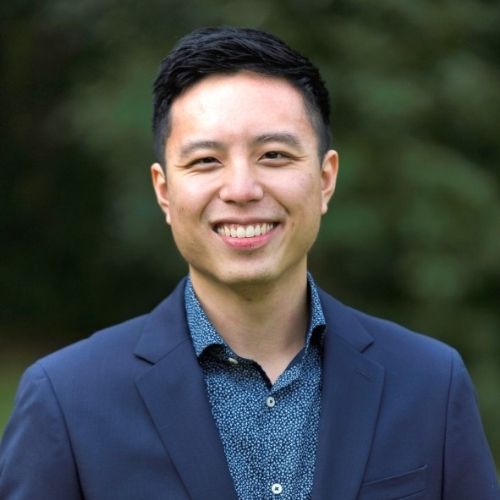
William Tsang
Mobilizing Community Partnerships for COVID-19 Testing: Lessons learned from Public Health - Seattle & King County and Seattle Flu Study
Practicum Site: Public Health - Seattle & King County - SCAN (Seattle Coronavirus Assessment Network)
Site Supervisor: Vanessa Quince
Department: Epidemiology
Faculty Adviser: Karen Cowgill
I am a second-year MPH student in the Department of Epidemiology. I come from a social work background and my interests are in epidemiologic methods, data visualization, and leveraging data for community-based action. My practicum project supported community engagement activities of the Seattle Coronavirus Assessment Network (SCAN), a free at-home testing program for COVID-19 in King & Pierce County. Under the purview of King County Public Health, I developed partnership plans with community based organizations who are uniquely positioned to reach households and address disparities in COVID-19 testing access. I engaged with Pacific Islander community leaders and the home care workers' union and supported the scale-up of outreach activities through social media, community representatives, and a drive-through testing site. During my free time, I enjoy the outdoors and sharing my indigenous Taiwanese culture through writing and dancing.
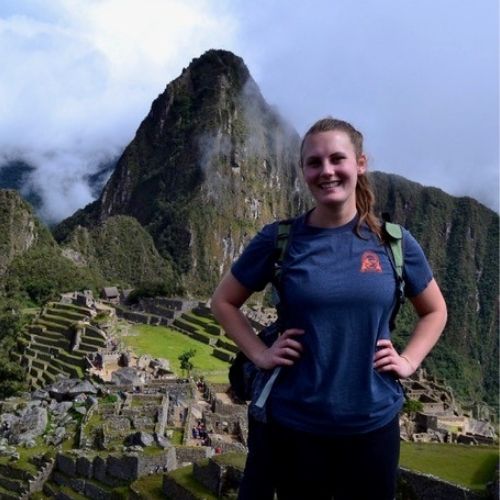
Gabriella LaBazzo
Surveillance Systems in Context of COVID-19: Barriers to Rapid Response and Opportunities for Innovative Technology
Practicum Site: Washington State Department of Health - Public Health Laboratory, Shoreline
Site Supervisor: Bryant Karras
Department: Epidemiology
Faculty Adviser: Janet Baseman
I am a second-year MPH student in Epidemiology. I am originally from Cody, WY and completed my undergraduate degree in Microbiology from Colorado State University. My research interests involve vector-borne and zoonotic diseases, and I currently work in the US. Department of Veteran Affairs as an epidemiologist for a large-scale observational study about COVID-19. I completed my Practicum with Dr. Janet Baseman and the Washington State Department of Health. My Practicum work involved providing insight into two main questions of interest: the first being an investigation into what barriers, in addition to limited testing capacity and insufficient and outdated technology, made it difficult to detect and conduct public health surveillance of emerging infectious diseases; and the second question of interest pertained to technology and what appropriate role innovative technologies could play in improving public health surveillance. My project consisted of a systematic literature review that is still in the process of publication and will hopefully aid in future policy and pandemic preparedness plans. I also mentored four undergraduate students who all worked on this project, through weekly individual meetings, weekly office hours, and continual availability for questions.
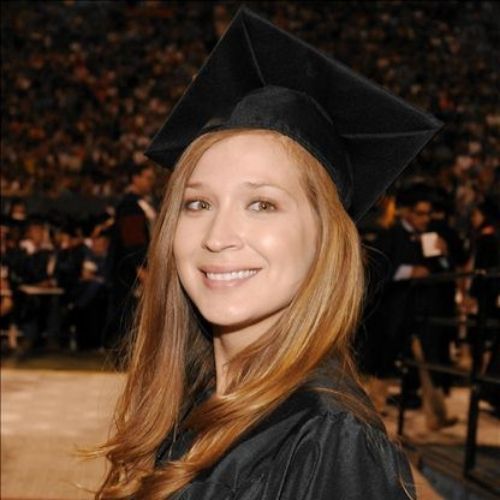
Dennise Drury
Developing COVID-19 Workplace Health & Safety Resources for Farmworkers in Washington State
Practicum Site: Washington State Department of Labor & Industries - Division of Occupational Safety & Health, Multicultural Safety & Health Outreach Program
Site Supervisor: Christian Ramirez
Department: Environmental and Occupational Health Sciences
Faculty Adviser: Edward Kasner
I am a bicultural and bilingual Latina from Texas and a first-generation college student. I work as an Education Specialist at the PNASH Center, and I am passionate about public health, community-based participatory research, and finding new ways to improve collaboration across academia, communities, agencies, and employers to improve the health and lives of Latino communities. For my Practicum, I worked with the Washington State Department of Labor and Industries to develop linguistically and technically accessible materials for Spanish speaking farmworkers and to disseminate them through a social media campaign, as the workplace requirements developed by the State to prevent the spread of COVID-19 in agriculture often uses technical language that are not available in Spanish. Farmworkers are essential workers who face an increased risk of COVID-19 exposure, and structural disparities such as lack of access to health care and paid leave also place them at a higher risk of illnesses and fatalities.
Faculty Moderator: Steve Schwartz, Professor
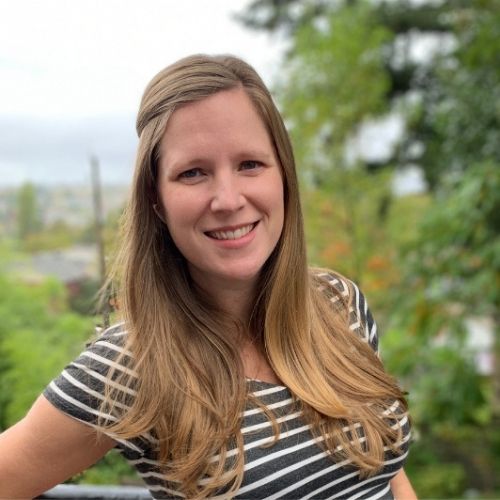
Michela Blain
Potential Bias in Infectious Diseases Fellowship Curriculum
Practicum Site: University of Washington - Department of Medicine
Site Supervisor: Robert Montenegro
Department: Epidemiology
Faculty Adviser: Jennifer Balkus
I am a second-year MPH student and a fellow in infectious diseases with an interest in health equity and medical education. For my Practicum, I worked with UW's Bias Reduction in Curricular Content (BRICC) team to code and analyze the 2018-2019 infectious diseases adult and pediatric fellowship didactics for potential biases. Healthcare disparities are pervasive throughout the US medical system, with significant gaps in access, prevention, treatment, and outcomes based on racial differences. Although this a complex issue caused in part due to structural racism embedded in our society, current medical education of health professionals may be unknowingly perpetuating implicit biases within the curricula that perpetuate these disparities through negative impacts on patient care and health outcomes. Given the close ties of certain infectious diseases to geography and epidemiologic factors, I used qualitative research methods to investigate the potential for implicit racial bias in the curriculum.
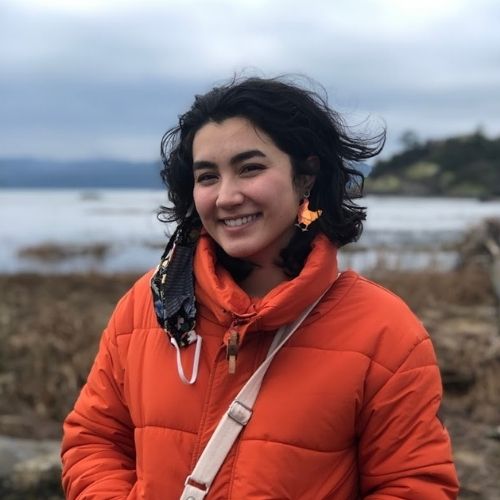
Alexandria Vingino
Antibiogram Amelioration: Using Focus Groups to Explore End-user Preferences on Antimicrobial Resistance Data
Practicum Site: Washington State Department of Health - Communicable Disease Epidemiology
Site Supervisor: Marisa D'Angeli
Department: Environmental and Occupational Health Sciences
Faculty Adviser: Marilyn Roberts
I entered the field of environmental health to figure out a way to explore health from a holistic view, considering humans, animals, and the environment we share! A topic that I have committed most of this educational experience to is antibiotic resistance and how it manifests in humans and marine mammals in the Puget Sound area. For my Practicum, I am working with the Washington State Department of Health to conduct focus groups with multidisciplinary health professionals, including clinicians, veterinarians and others involved in antibiotic stewardship efforts, to understand user-end preferences on antibiogram data. The qualitative data will be used to visualize antibiotic resistance data in more efficient and intuitive ways and advance the development of an antibiogram tool. I have really enjoyed speaking about a common issue of antibiotic resistance with different professionals in the health field and value the qualitative research skills I have developed over the course of this Practicum!
EJ Dusic
Collective Sense-making During the Coronavirus Pandemic: Proposed Study Description and Methodology
Practicum Site: Omic
Site Supervisor: Gabe Richman
Department: Public Health Genetics
Faculty Adviser: Anna Mastroianni
For my Practicum, I completed an internship with a local healthcare startup called Omic and developed study methodology to evaluate collective sense-making during COVID-19 using data from Twitter. At the start of the pandemic, Omic decided to shift its focus to empower researchers, doctors, patients, and data scientists to help in fighting COVID-19 by creating an online platform where they can share and use coronavirus data. My goals were to optimize the ways that public health information is shared by identifying high points of uncertainty or cognitive gaps, which can be critical points to share correct information, and to understand how the process of collective sensemaking can predict real-world health outcomes. I evaluated how people seek information about coronavirus online and came across the concept of collective sense-making. Using measures from this concept, I characterized the frequency of people seeking information or having feelings of fear, anxiety, and uncertainty using data from Twitter, which helped me better understand the relationship between this distribution and real-world health outcomes, such as the spread of COVID-19 in the United States.
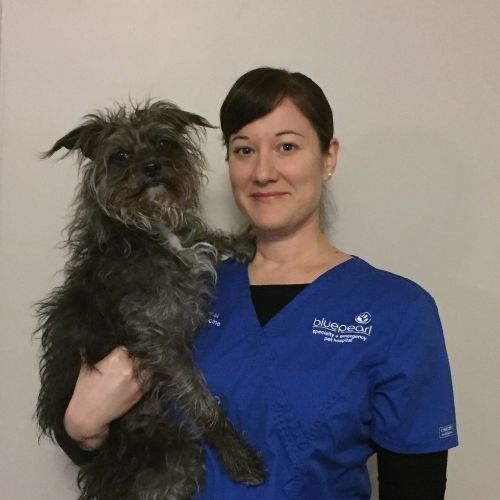
Elizabeth Mansi
Risk of angioedema in heart failure patients using sacubitril/valsartan (Entresto®) versus angiotensin-converting enzyme inhibitors; a non-interventional post-market database study focused on race
Practicum Site: Kaiser Permanente Northwest - Center for Health Research
Site Supervisor: Eric Johnson
Department: Environmental and Occupational Health Sciences
Faculty Adviser: Christopher Li
I am a second year MPH student that has found a real passion in the field of pharmacoepidemiology. As a veterinarian practicing for more than a dozen years, I was looking to transition out of the clinic and into research. What drew me to pharmacoepidemiology is the vast availability of data (via electronic medical records and insurance claims) and potential impact of the research. It’s been very interesting for me to learn about the similarities and differences between veterinary and human medicine. I feel that there is a real need for post-market pharmaceutical research to serve as a 'checks and balances' for clinical trials commissioned by pharmaceutical companies that may not include underrepresented groups such as minorities, elderly, children, pregnant women, and those with comorbidities. My practicum was at Kaiser Permanente Center for Health Research. KP was contracted to perform a post-market observational study on the adverse outcome of angioedema, with a focus on Black patients. In the clinical trial, there was a disproportionately high number of cases of angioedema seen in Black patients that were started on Entresto®. However, due to the small numbers of Black study participants, the FDA did approve the new drug on the condition that this post-market study be performed. My role was to objectively analyze the study protocol and statistical analysis plan.
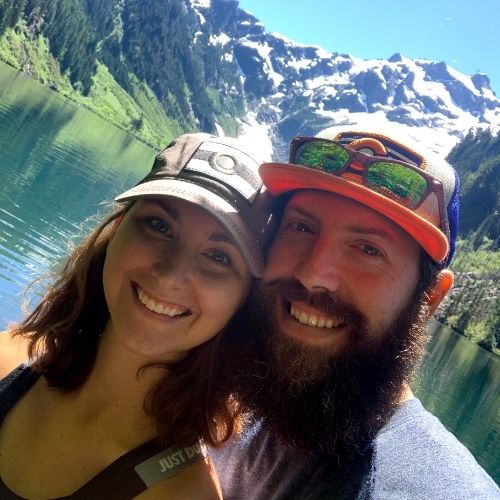
Sarah Lewandowski
Usability Testing of “Genetics & Cancer” Training Materials for Non-Healthcare Provider Clinic Staff: A Pilot Study on Adults
Practicum Site: University of Washington
Site Supervisor: Barbara Norquist
Department: Public Health Genetics
Faculty Adviser: Deborah Bowen
I am an MPH student in the Public Health Genetics department. For my Practicum project I worked on the Early Detection of GEnetic (EDGE) study. This study seeks to implement hereditary cancer risk screening and genetic testing in primary care settings. I was responsible for developing training materials for non-healthcare provider staff at the participating clinics to help them understand the role genetics and genetic testing plays in cancer prevention, diagnosis, and treatment, and how the EDGE study’s intervention would function within their clinic. I then performed pilot testing of the materials and qualitatively analyzed the sessions. This experience inspired me to do my thesis work within the EDGE study and will continue to serve me well as I pursue a career facilitating the translation of genomic technologies into everyday clinical practice. I love to spend my free time with my fiancé and our dogs, hiking and kayaking.
Faculty Moderator: Steve Gloyd, Professor
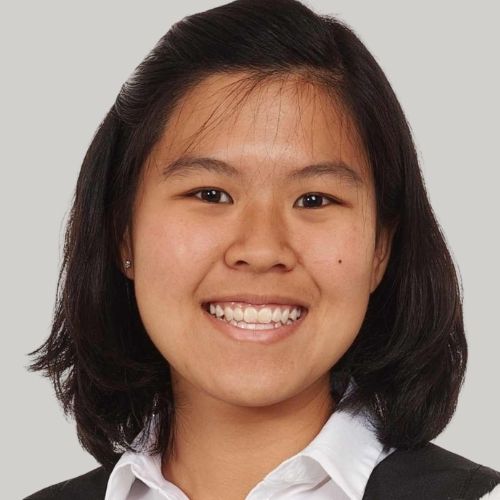
Shiyun Chua
Understanding the Lived Experiences of Asian Pacific Islander Older adults and Their Caregivers
Practicum Site: International Community Health Services - PACE at Legacy House
Site Supervisor: Kannie Chim
Department: Health Services
Faculty Adviser: Linda Ko
As a physician who focuses on caring for older adults, I am passionate about helping older adults to age in communities. Through my training in Singapore, England and different parts of the United States, I have observed disparities in caregiving practices amongst older adults and their communities. With the growing age and morbidity of the population, the number of care-dependent older adults continue to rise. Public policy has historically viewed informal caregiving as a moral obligation rather than an extension of the workforce, yet this can exacerbate health inequities for both caregivers and care recipients. This is true of participants at the Program for All-inclusive Care for the Elderly at International Community Health Services, many of whom are first-generation immigrants from China and Hong Kong. My Practicum project focuses on understanding the lived experiences of participants, their caregivers, and often their children, as well as their expectations of future care needs, so that PACE can better support them in aging healthily in the community.
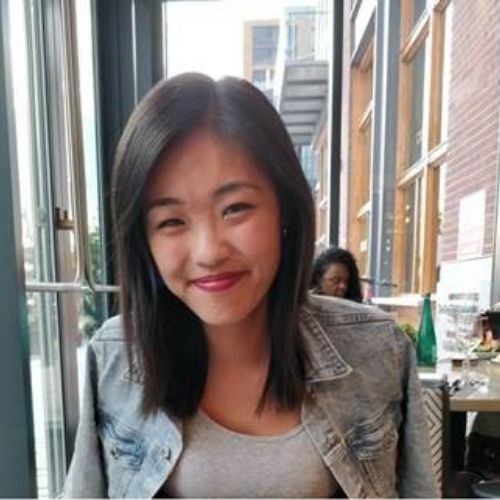
Kelianne Hara-Hubbard
Tuition Affordability and Student Debt for UW MPH Students
Practicum Site: Economic Opportunity Institute
Site Supervisor: John Burbank
Department: Health Services
Faculty Adviser: Peter House
I am a second-year MPH student in Health Services (Social and Behavioral Sciences). My passions lie in improving physical health, behavioral health, and social services for BIPOC, especially for older adults. For my practicum, I partnered with Anne Pulei and the Economic Opportunity Institute to research inequities in higher education and the effects of COVID-19 on graduate students in the Health Services department. We conducted a literature review comparing the United States higher education system to other countries around the world, and conducted a survey and focus groups to better understand our peers’ perspectives on education affordability. We recommended increasing support and considering alternative tuition methods that would relieve the burden too many graduate students face to simply survive while pursuing their education.
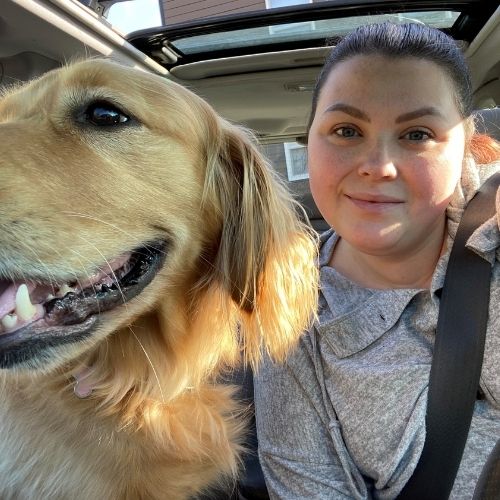
Katie Scarlett Spears
Public Health – Seattle & King County’s Own Medical-Legal Partnership: A Feasibility Study
Practicum Site: Public Health - Seattle & King County
Site Supervisor: Amy Shumann
Department: Health Services
Faculty Adviser: Jeffrey Harris
I am a second-year MPH student in Health Services and a full-time medical paralegal. For my Practicum, I partnered with Public Health – Seattle & King County to complete a feasibility study for an additional medical-legal partnership (MLP) in King County, Washington. MLPs consist of at least one healthcare partner and one legal partner and work together to meet the unmet needs of people and their families. After conducting a literature review and informational interviews, my recommendation was to add social workers, community health workers, and public health professionals to King County’s new MLP. After graduation, I plan to attend law school or obtain my Ph.D. and focus on revising dementia policy on a national level. Outside of school, I enjoy going to local dog parks with my pup, Trixie, and exploring everything the PNW has to offer.
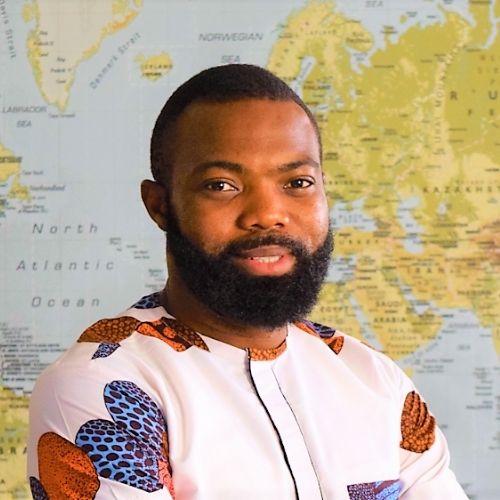
Gift Nwanne
Development of a Grant Application Guide to Improve Data Collection Process
Practicum Site: Pacific Hospital Preservation & Development Authority (PHPDA)
Site Supervisors: John Kim
Department: Global Health
Faculty Adviser: Caryl Feldacker
I'm a second-year MPH student in the Department of Global Health with interests in the intersection of health research, global public health policy and access to quality health care especially in countries going through economic crises. I have spent time working in donor funded HIV programs in Nigeria and also completed a fellowship providing health and wellness services to adolescents experiencing homelessness in New Jersey and New York. I completed my practicum at Pacific Hospital Preservation and Development Authority (PHPDA) which is a philanthropic organization with a mission to champion health equity and care for the vulnerable and disadvantaged in our community by working to close gaps in health disparities for the full continuum of health care services.
Working with the leadership and grant team at PHPDA, I created a grant application guide to help tighten up the data collection process to improve the collection of clean and relevant data which can be used for future Impact evaluations. This process will help increase the technical capacity of the grantee organizations to be successful at applying for future grants to provide health equity projects and interventions to the mostly marginalized communities they serve. I enjoyed the opportunity to work on a project that will empower community organizations and increase their capacity, setting them up for success in the future.
Outstanding Mentors
The following faculty advisers and site supervisors have been nominated by this year’s practicum students to receive special recognition for their outstanding mentorship.
Site Supervisor
- Alicia Adiele, Seattle Children's Center for Diversity and Health Equity
- Amy Shumann, Public Health – Seattle & King County
- Angela Micah, IHME Resource Tracking Team
- Chloe Morozoff, Global Wach
- Eric Johnson, Kaiser Permanente Center for Health Research
- Jaclyn Escudero, Global WACh
- James Olson, Iowa Department of Health
- Jennifer Okwudili, Bill & Melinda Gates Foundation
- John Kim, Pacific Hospital Preservation & Development Authority (PHPDA)
- Meher Antia, UW Population Health Initiative
- Michael Lipnick, UC San Francisco Center for Health Equity in Surgery and Anesthesia, Zuckerberg San Francisco General Hospital
- Paul Pottinger, UW Medicine
- Tessa Concepcion, Global Mental Health Program
- Victor Colman, Childhood Obesity Prevention Coalition
Faculty Adviser
- Anthony Roche, Global Health
- Arianna Means, Global Health
- Caryl Feldacker, Global Health
- Donna Johnson, Nutrition
- Edward Kasner, Environmental and Occupational Health Sciences
- Janet Baseman, Epidemiology
- Jeff Lane, Global Health
- Jeffery Harris, Health Services
- Steve Gloyd, Global Health
- Sylvia LaCourse, Global Health
- Theo Vos, Global Health
